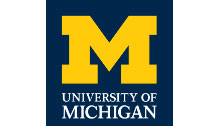
Assistant/Associate/Full Professor in Social Epigenetics
Job Description
How to Apply
*NOTE: Please do NOT submit your application via this system; to be considered, you must submit your application via the Interfolio process outlined below.
Interested candidates should submit the following materials electronically through Interfolio at https://apply.interfolio.com/156408. For best consideration, apply by December 1, 2024, however, applications may continue to be accepted and reviewed until the position has been filled.
The below materials should be consolidated into one PDF document before uploading to Interfolio.
Review of applications will begin December 2, 2024, and continue until the position is filled. Nominations, applications, and expressions of interest will be held in confidence, and references will be contacted only with the candidate's permission.
Should you require support related to your system application experience, please visit this link, contact us at [email protected], or at (877) 997-8807, 9-6 Eastern Time M-F. For questions about the position, please contact the search committee chair Rebecca Hasson at [email protected] or 734-763-8671.
Job Summary
The School of Kinesiology at the University of Michigan is pleased to announce a strategic hiring initiative targeting several emerging and multidisciplinary themes. As part of this initiative, we are searching for a Social Epigeneticist whose research focuses on the identification of social-environmental factors, their influence on human biology through epigenetic modifications, and how they contribute to current health disparities. We invite open rank applications and nominations for this tenure-track faculty position. Candidates will be expected to maintain a robust research program, teach undergraduate and graduate courses, and have research expertise appropriate for effectively mentoring trainees at the undergraduate, doctoral, and/or post-doctoral levels. Successful candidates will be expected to maintain extramural funding for an active research program at the University of Michigan.
As a school, we are building on existing faculty interests to develop a research group in health equity and social change through physical activity and sport. A successful candidate will be expected to participate in this effort, as a foundational member. This initiative is motivated by a vision to expand knowledge of how sport and physical activity programs at the individual, organizational, and/or community levels may address (in)equities/disparities in health and wellbeing, thereby contributing to social change. Environmental factors, including physical exercise, have been shown to have a beneficial influence on epigenetic modifications. Accordingly, potential areas of study include but are not limited to epigenetic changes (e.g., DNA methylation, micro-RNA expression) in response to the environment, targeted epigenetic therapies, and environmental/social strategies to minimize health disparities.
In addition to the many exciting opportunities within the School of Kinesiology, the school has a strong record of successfully partnering with other academic units within the university - consistent with the culture of the University of Michigan that highly values innovation across disciplines. Faculty members are encouraged to work with experts across campus, and internal funding opportunities exist to support collaborative teams.
Who We Are
The School of Kinesiology at the University of Michigan is the top Kinesiology program in the United States, according to a recent review by the National Academy of Kinesiology. The School is one of 19 independent academic units and one of seven health science schools and colleges within the University of Michigan. The School is led by Dean Lori Ploutz-Snyder, and has 40+tenure-line faculty, 12 clinical-line faculty, 25 part and full-time lecturers, and approximately 1200 undergraduate and 150 graduate students, across four programs (Sport Management, Movement Science, Athletic Training, and Applied Exercise Science). In 2021, our school moved into a newly renovated, state-of-the-art academic and research building (School of Kinesiology Building), located in the heart of the University of Michigan's main campus. The $120,000,000 renovation project expanded the School of Kinesiology's research, classroom, and office space to approximately 189,000 sq ft.
The School celebrates, and is committed to, the ideals of diversity, equity, and inclusion and believes that they enrich the learning environment and enhance the school's innovation and overall productivity; review more detail about our diversity commitment here.
Required Qualifications*
A PhD is required. Scholars from different disciplines, whose research centers on social epigenetics, are encouraged to apply, including those with doctorate degrees in genetics, biochemistry, bioinformatics, computational biology, molecular/developmental biology, kinesiology, public health, social or behavioral sciences, or related field. Candidates must have experience in primary data collection, which involves gathering original data directly from sources through methods such as surveys, interviews, observations, or biological sampling, rather than relying solely on existing data. Candidates should also demonstrate their contributions to a positive workplace culture, aligned with our school's core values.
Assistant Professor candidates should demonstrate academic independence with respect to: 1) publishing high-quality, peer-reviewed research, 2) mentoring undergraduate and graduate students, 3) teaching undergraduate and graduate courses in their area of expertise, 4) the ability to seek and secure research funding, and 5) a commitment to diversity, equity, and inclusion.
At the Associate and Full Professor ranks, candidates should demonstrate a consistent and ongoing record of securing research funding. Additionally, they should possess the necessary experience and skills to provide leadership that will advance the scholarly excellence of the School of Kinesiology. These requirements are in addition to those expected at the Assistant Professor rank mentioned above.
Modes of Work
Positions that are eligible for hybrid or mobile/remote work mode are at the discretion of the hiring department. Work agreements are reviewed annually at a minimum and are subject to change at any time, and for any reason, throughout the course of employment. Learn more about the work modes.
Background Screening
The University of Michigan conducts background checks on all job candidates upon acceptance of a contingent offer and may use a third party administrator to conduct background checks. Background checks are performed in compliance with the Fair Credit Reporting Act.
Application Deadline
Job openings are posted for a minimum of seven calendar days. The review and selection process may begin as early as the eighth day after posting. This opening may be removed from posting boards and filled anytime after the minimum posting period has ended.
U-M EEO/AA Statement
The University of Michigan is an equal opportunity/affirmative action employer.
*Please mention you saw this ad on AsiansinHigherEducation.*





